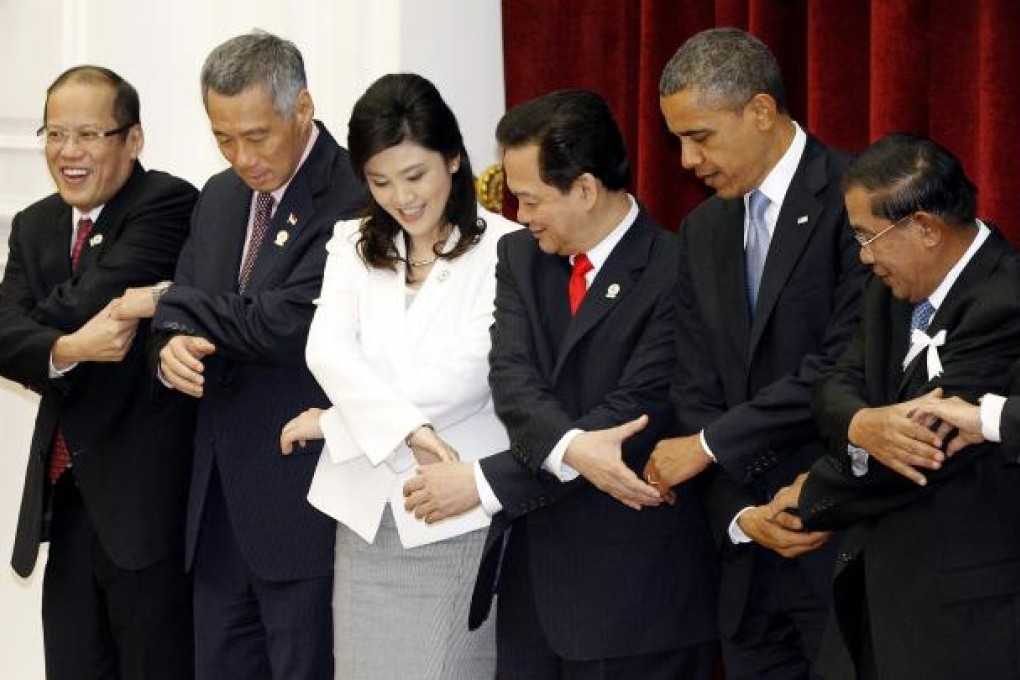South China Sea dispute wrecks Asean unity
Consensus shattered after Manila challenges Phnom Penh's claim that bloc had agreed not to 'internationalise' disputes with Beijing

Asean unity yet again lay in tatters last night – thwarting a Chinese-backed effort to keep South China Sea territorial disputes off the agenda of today’s international leaders’ summit in Cambodia.
Host Cambodia’s claim on Sunday that the 10 leaders of Southeast Asia had agreed not to “internationalise” the issue by limiting it to meetings with China was directly challenged by the Philippines’ President Benigno Aquino.
“There were several views expressed yesterday on Asean unity which we did not realise would be translated into an Asean consensus,” Aquino told fellow Asean leaders during a meeting with Japan yesterday, according to a government statement.
“For the record, this was not our understanding. The Asean route is not the only route for us.”
Malaysia, Vietnam, Philippines and Brunei, dispute China’s claim to virtually the entire South China Sea.
The deal had marked an apparent diplomatic victory for Beijing. Chinese envoys have been lobbying hard on the issue, and Cambodia – a Chinese aid recipient – was once again accused of doing Beijing’s bidding as this year’s chairman of Asean.
“It is a hell of a mess,” said one Asean diplomat. “I fear we could be back to where we started six months ago,” he said, a reference to the Asean meetings in July that failed to produce a routine communique.